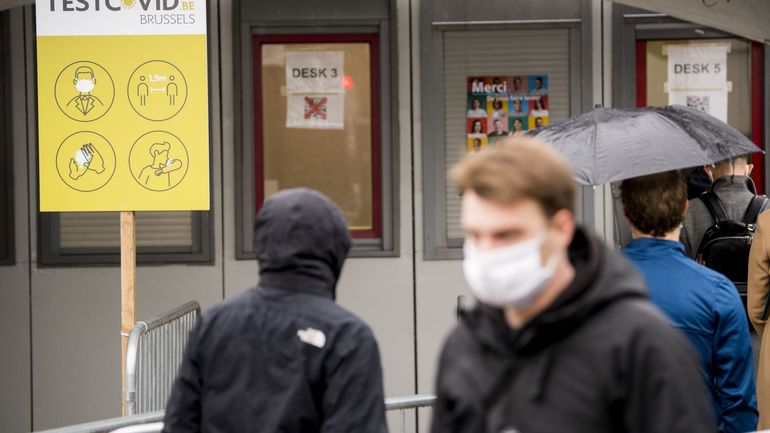The number of people testing positive for the coronavirus in Belgium is continuing to increase and has now reached levels last recorded in November last year.
Between 16 and 22 October, an average of 5,300 new coronavirus infections were identified every day – a 75% increase from the previous seven days, according to the latest figures published by the Sciensano Public Health Institute on Tuesday morning.
As a result of the worsening epidemiological situation, the Consultative Committee has been moved forward from Friday to Tuesday afternoon to discuss possible new measures.
Although this increase can in part be explained by the fact that the average number of tests taken has increased by 30% since last week (63,148.6), the positivity rate itself has also risen, now sitting at 8.5%, up by 2.1% since last week - the highest rate since April.
During the same period, an average of 13.3 people died per day from the virus, up 13% from last week. This brings the total number of deaths since the beginning of the pandemic in Belgium to 25,889.
However, the average number of people dying as a result of the coronavirus is relatively low compared to the number of deaths recorded in November last year, when infection rates were similar to now, mostly due to Belgium's successful vaccination rollout.
Related News
- Re-introducing face masks indoors considered as Covid-19 situation worsens
- 'Fourth wave' has begun: These are the rules
Between 19 and 25 October, on average 115 patients suffering from Covid-19 were admitted to hospitals per day, a 56% increase since the previous week.
On Monday, a total of 1,275 people were in hospitals due to an infection (107 more than on Sunday), including 264 patients being treated in intensive care (+9), with 121 on a ventilator (+6).
The virus reproduction rate meanwhile sits at 1.27, after skyrocketing to 1.37 during the weekend. This figure represents the average number of people infected by each infected person, and when it is above 1, it means that the epidemic is gaining ground in Belgium.
The incidence, which indicates the number of new cases per 100,000 inhabitants, has decreased slightly and now sits at 505.6 over the past 14 days, up by 109%.
As of Sunday, more than 8.67 million people in Belgium have received a first dose of the vaccine, representing 87% of the adult population, and 75% of the total population.
Meanwhile, more than 8.53 million people are fully vaccinated, accounting for 86% of the adult population in Belgium, and 74% of the total population.
Belgium has also started administering booster doses of coronavirus vaccines to people from certain vulnerable groups to keep the protection against the coronavirus sufficiently high. As of Sunday, almost 515,000 people had received such a dose.

